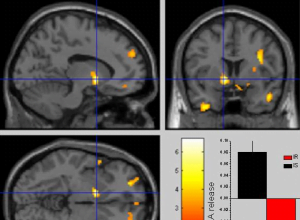And the rapidly evolving world of artificial intelligence we are seeing a significant impact on different industries and Healthcare is no exception to the rule. AI powered chatbots are transforming healthcare by enhancing efficiency and access like never seen before.
This technology is not only improving efficiency within the healthcare industry, but it is helping with patients’ overall experiences and accessibility to people who otherwise couldn’t access healthcare easily. AI-powered chatbots are able to help improve assistance in real-time and streamline some administrative tasks that help improve patient outcomes.
Since efficiency is an important aspect of the healthcare industry, it is no wonder they have harnessed AI chatbots to help with this area. Over the years, we have seen delays and mismanagement of patients’ information as well as their health care, which has led to severe consequences not only for patients but for the healthcare industry as a whole.
AI Chatbots Reduce Admin Work
Medical professionals often spend a lot of time completing administrative tasks, such as inputting data about patients, processing inquiries, and scheduling appointments. AI chatbots help reduce this workload, allowing these professionals to focus on other areas of their job description. AI chatbots can handle almost any automated task or repetitive tasks like appointment scheduling and so forth because of their natural language processing capabilities.
Assistance for Accurate Symptom Checks
AI chatbots can analyze symptoms reported by patients and provide an assessment that is more accurate than ever before. This allows the AI chatbot to use its natural language processing and machine learning to evaluate the symptoms reported against a huge database of medical details and suggest accurate conditions that may apply to the patient. This can help prioritize the right medical conditions to alleviate the chance that someone with dire need is placed on a long waitlist.
Improving Medication Options
As time goes on, we are constantly seeing new medications on the rise, and with that, the need for proper medication management. This is where AI chatbots can come into play, helping patients remember to take their meds and provide accurate dosage information for each patient. Not only that but a patient with heavy medication needs could be assigned an AI chatbot that focuses impartially on that patient’s data records to help them know about side effects and to provide answers to questions as they come about in the patient’s daily life.
AI is Expanding Access for Everyone
We are starting to see AI powered chatbots improving access to healthcare for everyone. We see 24/7 responses within the healthcare industry; something known as telehealth or similar names have arisen over the last few years.
This is something that harnesses the power of AI to help patients connect with healthcare advice in a chatbot environment. This means the hospital or doctors’ offices don’t need to pay extra employees; rather, they can use AI-powered technology to answer frequently asked questions and other things that patients may ask during off hours.
If the AI chatbot seems to sense that the patient needs access to a human assistant, then it can easily transfer the patient to someone who is on call to answer these needs. While you may think that this means AI chatbots will replace human jobs, this isn’t the case. We will need to have human oversight as AI Chatbots transform the healthcare industry with improved access and efficiency.
Since some people all over the globe struggle with healthcare access due to financial reasons or even language barriers, we see AI chatbots bridging those gaps. AI chatbots can provide assistance and information in multiple languages to ensure proper communication and advice are given accurately. This allows chatbots to help people who would otherwise not gain access to advanced healthcare advice or options.
We have seen much improvement in the mental health industry for people who have previously experienced long wait lines for high-demand services such as therapy or psychologists. AI chatbots can, at a minimum, provide some immediate guidance and support to those who are on long wait lists. AI companions can also provide emotional support and some level of therapy for those who are on these long waiting lists.
While AI chatbots cannot replace true medical care in the environmental health industry for those who need extensive care options, they are a great in-between when those who need this service are in long wait lines. AI chatbots could bridge the bag to ensure these patients don’t feel “lost in the system” or forgotten as they wait on these waiting lists, which can often take years to see someone.
AI chatbots are simply becoming a huge part of the healthcare industry in so many productive ways. From the ways we shared above to simply supporting preventative healthcare and public health issues, this technology is very intelligent. With the onset of natural language processing, we are seeing AI technology improve itself to align more with our human values and methods of talking so that these technologies are less clunky or robotic in nature.







